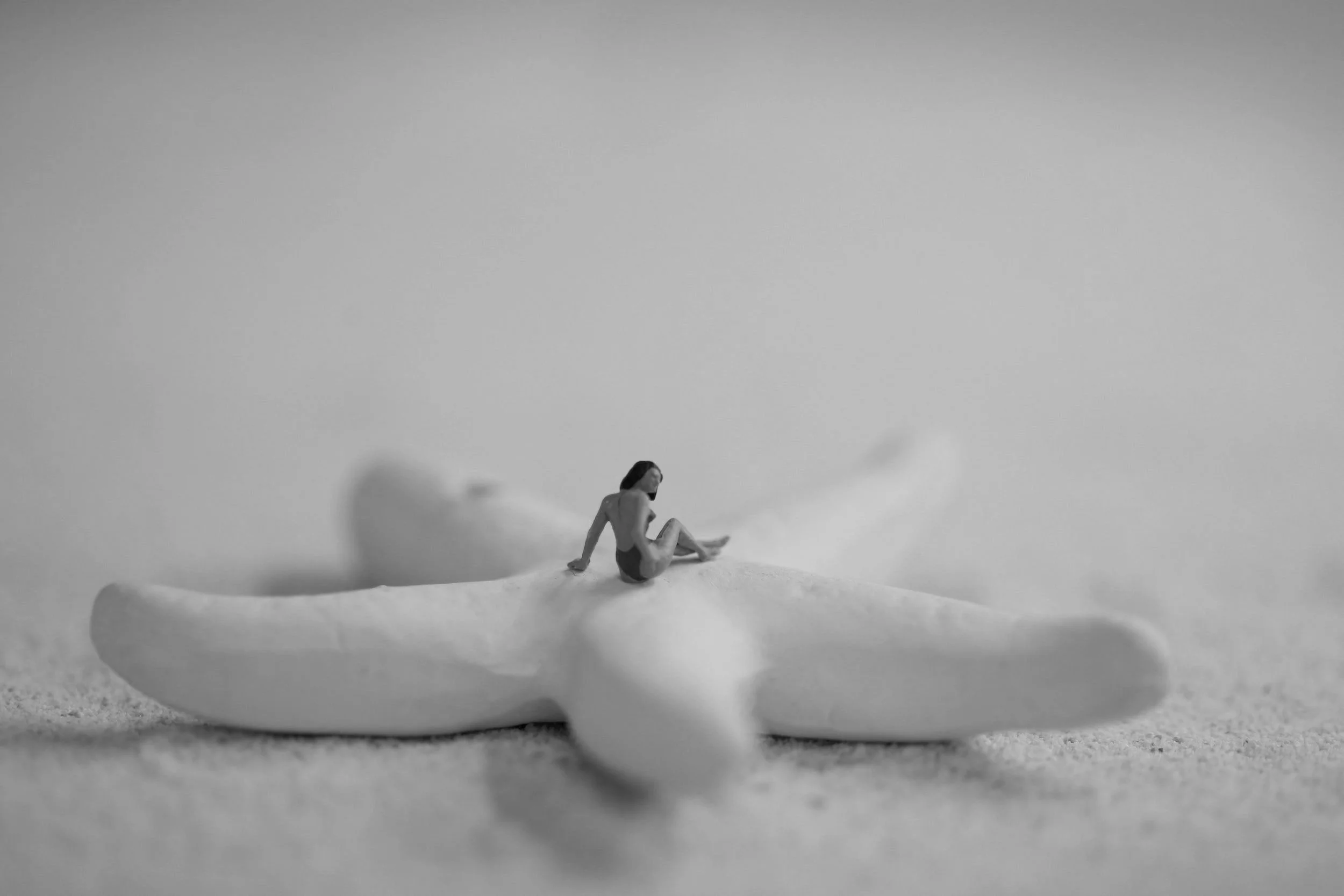Big Fish, Little Fish
I must have been about 7 or 8 when I saw it. A bunch of us soggy, sunburned kids had been paddling in the shallows for what seemed like hours, and I spotted a moving shadow nearby. I saw shadows like it all the time, but this one didn’t refocus or dissipate when I reassured myself that it was nothing. Nope, this one was real, and it was getting a lot closer than I wanted it to. Being the skittish kid that I was, and seeing how “Jaws” was popular at the time (yeah, I’m that old), I assumed the worst, screamed “SHARK!”, and pretty much ran on top of the water back to the dock.
It wasn’t nothing, but it wasn’t a bloodthirsty, vindictive Great White either. Just a lonely, wayward carp who decided to swim closer to shore than it normally would. We watched it slink along the rocks, then turn around and head back to the deep end.
Fast forward a few decades, to another visit to the lake, and I’m paddling in the shallows again, this time with my own little water rat. She refuses to stand still for more than a few seconds, lest her toes be peeled clean by a school of minnows. I stick up my pinky finger as a unit of measure and reassure her that nothing this close to shore is any bigger than that. I smile as I remember my encounter as a kid, and explain that the big fish live in the middle of the lake, where they can hide from noisy human pests like us.
And then an hour or two later, I watch as a hawk expertly swoops down at the shoreline and nabs a snack, a specimen considerably older and heftier than the wee things we were chasing away earlier. The fish in the shallows are much bigger than I thought.
It’s been two and a half years of these kinds of experiences.
There are things that we may have once considered “minnows” (potentially annoying, but tiny and nothing of great consequence) that have turned out to be big. We’ve had a forceful reminder that germs and viruses are not insignificant. They can’t be brushed off or stomped through like schools of small frey. As we’ve seen with our efforts to deal with these invaders, our everyday choices and our actions are not tiny, unimportant details either. We are all swimming in schools, and the way we behave around one another, the way we relate to one another, can have profound and lasting effects.
This applies to people as well. Lots of individuals we may not have otherwise noticed, have stepped up and shown us new ways of doing things. The small businesses and organizations that have stayed afloat have shown incredible determination and ingenuity. Scores of people in service industries have kept us fed and supplied. A whole lot of medical professionals, emergency workers and educators have marched us through the worst of the worst. For the most part, we didn’t know their names, or anything about them. They haven’t received the recognition a “big fish” would have commanded, but they have been taking on the responsibilities of one.
On the flip side, an awful lot of “big fish” have turned out to be tricks of the eye. Huge, seemingly impossible things have happened much quicker and much more easily than any of us could have imagined. We’ve been able to bring entire countries to a screeching halt. We’ve learned and we’ve worked from home, often with a million distractions around us. We created, tested and distributed a vaccine, in the span of a year. Okay, all of these things are still “big fish”, but they have not been the impassable leviathans we once assumed they were.
It seems like we’re also changing our perspective on people and institutions that are “big fish” too. Somehow being wealthy, famous, and powerful means little if it involves causing the suffering of others. Being “big” is no longer enough to keep you from getting cancelled, being slapped with criminal charges, having your statue toppled. It is by no means easy to pull a big fish out of the water, but I see us being less intimidated by them. We’re starting to realize that the shadows they cast can be deceiving.
For so long, we’ve been looking at things as if they were beneath the ripples of a lake. We’ve become accustomed to distortion, to being afraid to get a little cold or soggy in order to take a closer look. Little fish can sneak up on us in great numbers, and they inevitably grow bigger with time. Big fish are not nearly as likely to swallow us whole, to pull us into the undertow as we’ve feared. The trick is neither to dive in blindly, nor make a run for the dock. Moving forward involves putting on goggles, putting our faces in the water, and taking a good long look at what’s actually there- swarms of new little fish who are capable of big things, and who will find big problems waiting for them when they swim in open waters.

